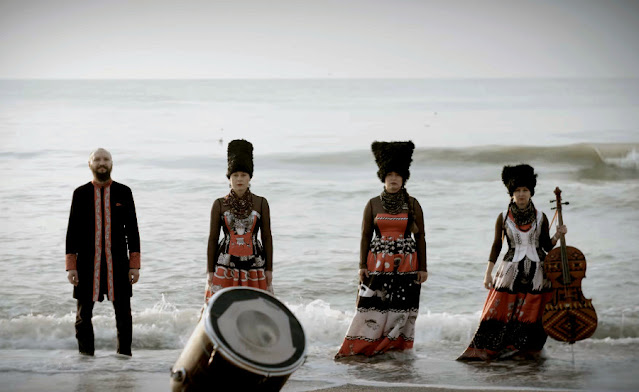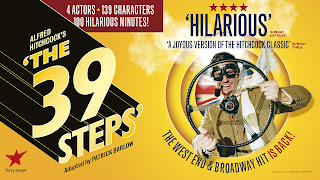How has the internet changed in regards to child safety?
I have previously discussed the downfalls of the internet age on this blog before. Whilst I placed a large focus on the general negativity the internet injects into our lives I only placed a very light focus upon the effects it has upon children and teenagers. Indeed, over the past 12 years or so the way in which people 16 and under interact online has changed drastically, that is the way young people interact online now has changed completely from the way I used the internet when I was a child and that change is not for the better.
When I was a child I mostly used the internet to play free flash games. Until the age of around 10 I would spend an hour or two per evening on sites such as girlgogames where I would play restaurant simulation games or click and point adventures. These games were simple, often poorly made, but fun for a kid that was transitioning from playing tag and role playing games to being 'too old' for that stuff in senior school. Much of my time however was spent on community games such as Moshi Monsters, Webkinz and Club Penguin. Whilst you interacted with people from all over the world these games were usually extremely safe. You could invite school friends to play with you and visit their house or you could interact with other kids you didn't know, however the speech filtering systems which was on these sites largely kept children from having unsafe conversations, with it not allowing for any unmonitored private messaging or rude words to be used in the public chats. Overall these were sites that allowed for social interaction but placed children's safety first, these were sites made for kids. Whilst I did spend most of my time on moshi monsters buying furniture and playing single player games it was fun to enter into competitions with others whilst feeling safe in doing so.
However, over the past decade or so from when I was a child until now many of these kids games sites have largely been phased out. With flash player being discontinued at the end of 2020 many of the free single player games sites are no longer as functional as they used to be, with many of the games being phased out. But more importantly many of the community based sites such a moshi monsters and club penguin shut down. For club penguin that had 200 million registered on users in 2013 to then shut its doors highlights the extreme decrease in the number of children playing these sorts of safe communal games designed specifically for children. Indeed, even sites which are still active such as Webkinz are only thought to have a few thousand active users. Indeed, what was once the main source of kids entertainment on the internet is now left abandoned with a giant void left in its destruction.
But what does this mean for children today? It means advancing to adult sites far too early. Whilst almost all social media still insists that one must be at least 12 to legally go on their social media sites with the absence of child friendly websites, now more than ever are young people ignoring these age restrictions and creating accounts. Some children will of course not do this and stick to what few remaining game sites or apps there are for them, plus there is at least a child friendly youtube site that does monitor whether videos are safe for kids. But largely many do use adult sites, given that all their friends are on it too and as such there is at least a large increase in the amount of children under 12 using social media from when I was that age. This is especially true for sites such as tik tok which seem to have the youngest user base given how new it is in relation to sites such as facebook. This means that many children are no longer under the protection of speech filters or monitoring by safety teams but are instead exposed to content that they are perhaps too young to see. This isn't just the use of swear words but rather extends into more dangerous areas. For example, on tik tok there are a varying degree of challenges or stunt videos which will pose risk to one's health if not executed correctly but a lot of kids viewing these sorts of videos don't realise this and having not fully developed reasoning skills will attempt them with no safety measures in place, causing broken bones and other injuries. There is also a danger in terms of the content they are exposed to being unsafe in terms of what is said, as young children are more susceptible to believe in things adults have told them and are less likely to question it, leading to children getting caught in dangerous beliefs which they do not fully understand as dangerous. Finally without safety features and text being monitored children are more likely to be harassed and bullied than they would be on sites catered to children. This exposes them to a greater degree of negativity at a far earlier age. Whilst children may be bullied at school they are exposed to bullying by strangers which may have a long lasting effect on their mental health. Indeed, with the general disappearance of children's sites, children are now using social media sites which doesn't offer them protection in this developmental stage of their life.
Furthermore, another issue that effects not only young children but teenagers in general is the loss of internet safety techniques. Whilst I can only assume that internet safety is still taught in schools its lessons has seemed to be lost in the young people that have grown up online and on social media. Indeed, I remember when I was younger I was scared to talk to strangers on the internet, and even when I made friends and had seen a multitude of their selfies I was still worried that they may not be who they said they were. I was taught not to give away any real details away and would use a fake name on all social media sites other than facebook until I was at least 14. I would only talk publicly with those I didn't know and would have to be absolutely certain that the person was genuine before engaging with them in private messages. Whilst I may have been extra vigilant with my internet safety up until the age of 16, more so than some others my age, most people I knew were also very careful and didn't really post many private details about themselves on an public social media until Instagram became popular in the UK around 2015.
However, as the generation now has grown up on the internet many believe they know whats best and often ignore internet safety tips. As such I have seen a rapid increase of 14 year olds and younger projecting details about themselves on their social media accounts. Whilst my twitter bio when I was 14 might have had a quote or a summary about my interests (in terms of tv shows or movies) I see many 14 year olds accounts displaying their age, their city, their birthday and many other details about them, whilst also displaying photos of themselves in their school uniform or with locations near their homes in sight. Whilst I would like to think this wouldn't matter it is clear that young people are now over sharing about themselves with strangers online which puts them in serious danger if the wrong person was to come across their account. They also feel much more comfortable putting themselves into private group chats with people they barely know, people who often have photos of celebrities as their profile picture rather than themselves. Whilst the majority of the people in that group chat may be their age this relaxation around strangers on the internet could lead them to adding a person who is far older and will take advantage. Which in the worst cases could lead to grooming or indecent exposure. Indeed, young people are far too relaxed when it comes to interacting with strangers more so than anyone I knew when I was younger. And many demand that we make social media a safe place for young teenagers, that is by not sharing any form of adult content and by putting our age in our bios so that they know not to interact with us. Yet, they fail to realise that for the latter point that it wont make any difference as those over 18 who intend to interact with younger people will just lie about their age and that in turn by putting their own age in their bios, to stop adults interacting with them, they just advertise themselves to terrible people. Furthermore on the former point, adults shouldn't have to create safe spaces for children on social media, in terms of making their content child friendly if they haven't explicitly stated that their content is child friendly, as there should instead be sites for young people and social media shouldn't be their sole source of entertainment online. Indeed when social media wasn't as big a source of entertainment for kids and young teenagers the monitoring of ones content wasn't an issue because young people would be exposed to it far less. But now due to the destruction of online spaces for young people children and adult communities have merged making it very unsafe for young people.
Indeed, the way the internet has developed over the past 12 years have locked young people out of safe online spaces, leaving them exposed to all forms of dangerous online content. As such it appears things really need to change soon and fast before we face greater issues we couldn't have predicted when the internet was first created.





Comments
Post a Comment